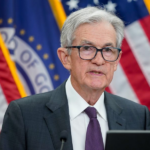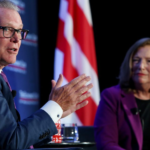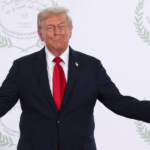Speakers pointed to the rise in global conflict, perhaps best exemplified by Russia’s ongoing war in Ukraine, as a cause for this shift. “In the past 10 years, we’ve gone from the Global War on Terror to near-peer competition with China,” Milam said.
“There’s a ton of money being poured into defense from venture capitalists right now,” said Steve Simoni, founder of Allen Control Systems, which designs robotic weaponry. “Conflict is rising, and as a venture investor, it seems like you better put some chips down or you’re going to miss out.”
China, consistently cited by Wednesday’s speakers as a threat and a motivating factor behind the interest in defense tech, is a distant second at 12%, though Beijing still spends more on defense than most other countries.
More recently, users blasted Oura on social media after the wearable tech company announced an expanded partnership with the U.S. Department of Defense, including a new U.S.-based factory in Texas, as well as a new tie-up with Palantir to measure “population-level analysis of risk and readiness.” Oura users expressed concerns that their health data might eventually make its way into U.S. government hands.
“We will never sell your data to anyone, ever,” he said.









